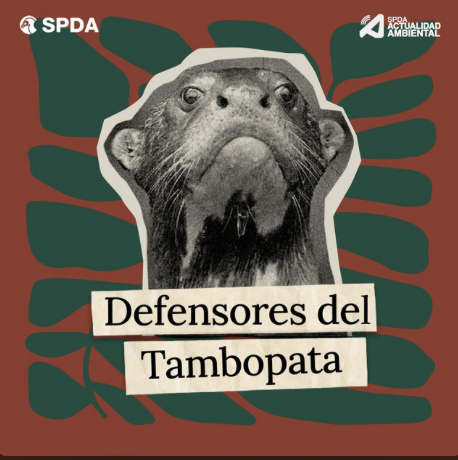Guardianes del Tambopata - PODCAST
Los cinco episodios del podcast ‘Guardianes del Tambopata’, producido por la Sociedad Peruana de Derecho Ambiental (SPDA), se encuentran disponibles en las plataformas de Spotify, Amazon Music y Deezer. En este podcast, se relata, desde la voz de los propios protagonistas, la labor del Comité de Gestión de la Reserva Nacional de Tambopata (RNTMB) y de cuatro de sus miembros: Víctor Zambrano, Demetrio Pacheco, Andrés Szabo e Isabel Yalico (fallecida en junio de 2023).


